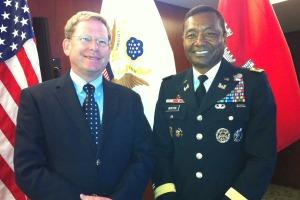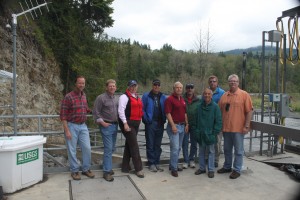
Rollin Hotchkiss was recently chosen to become a committee chair for the U.S. Army Corps of Engineers’ Environmental Advisory Board.
“It’s an honor to serve with great people,” Hotchkiss said about his appointment to the board.
Hotchkiss was appointed because of his high level of skills and education in civil engineering, and it all began at BYU. The university has greatly impacted his career.
“It set the stage for what kind of a person I was, and then when you add the training I received in my major, that enables you to do a lot of things if you would like,” Hotchkiss said.
Hotchkiss graduated from BYU with a bachelor’s degree in civil engineering in 1976, from Utah State University with a master’s degree in civil engineering in 1979 and from the University of Minnesota with a Ph.D in civil engineering in 1989.
He gained more experience as a professor at Washington State University and the University of Nebraska-Lincoln. He started teaching at BYU in 2005.
After only a few years of teaching at BYU, he was awarded the Ira A. Fulton College of Engineering and Tecnology Excellence in Education Award and the title of Outstanding Civil and Environmental Engineering Faculty teacher in both 2008 and 2009.

One of his students said on ratemyprofessor.com that Hotchkiss “has been the most influential professor in my university career. His lectures are inspiring and detailed. … His assignments encourage growth, and he lives what he teaches.”
Hotchkiss is currently the chair of the Department of Civil and Environmental Engineering at BYU and the president of Environmental and Water Resources Institute.
He said this new leadership position on the U.S. Army Corps board is different from his previous positions because of the level of respect it earns. “It’s a little intimidating. … There is some pressure because whatever you write or say is going to receive a lot of scrutiny and attention and consideration,” Hotchkiss said.
According to the U.S. Army Corps website, the committee meets one to two times per year to provide “independent advice and recommendations on matters relating to environmental issues facing the Corps of Engineers.”
As the committee chair, Hotchkiss and nine others respond to requests from the chief of engineers.
“We are reactive to his (the chief’s) desires. We are also proactive in what we think they should be considering.”
According to Hotchkiss, the Environmenal Advisory Board’s work is a high priority because its goal is to “restore our environment to something more natural while continuing to enjoy the benefits.”




